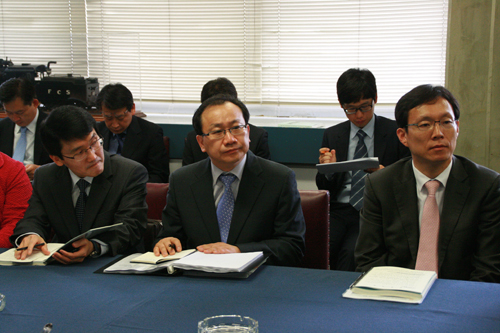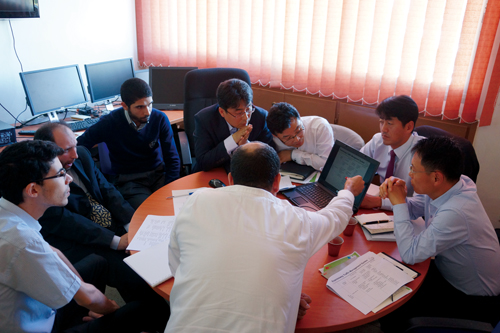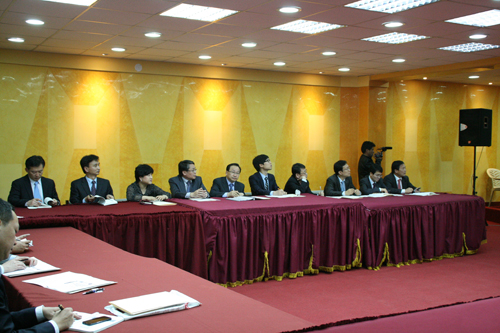KEC Well on Its Way to Exporting Highway Management Know-how and Construction Technology
The 2005 Mana Island Detour Road Design Project in Indonesia is a good example of KEC’s 69 overseas projects in 16 countries

Since 2005, Korea Expressway Corp. (KEC) has been continuously at work expanding its overseas operations to export its know-how on highway management and construction technology accumulated over four decades.
KEC currently is in charge of managing 31 highways and expressways around the country extending for 3,760 km and 20 highway construction projects stretching for 980 km in Korea. Its overseas projects now total 69 in 16 countries including the Mana Island Detour Road project in Indonesia involving design, building, and management. Its overseas manpower has grown from nine in 2005 to 46 this year.
The company’s overseas strategy is to cooperate with private investors in the areas of core capacity and investment projects to expand its markets.

Korea Expressway Corp. staff members are discussing an intelligent
transportation system (ITS) project in Morocco. (photo: KEC)
Cooperation with private investors will enhance its competitive power by combining capabilities and helping private investors go overseas for projects and expend the highway company’s roles as both a major operator and supporter overseas.
The highway company will take charge of planning, stake investment, project management, and operations management in its overseas roles, while frequently leaving such work as design, feasibility study, and construction to designers and builders.

KEC plans to avoid works that are being undertaken by private companies such as designing and will only take charge of the key areas and investment projects associated with its core operation areas.
Its central responsibility areas are project management, and high-tech information technology systems in the management of the highway network. Investment areas include the role of investment consultant as stake investor while controlling the rights for highway management and operation.
With Southeast Asia as its overseas base, the KEC has been expanding its operations to other regions with great growth potential such as the Middle East and Central and South America with strategies and policies suitable for each country in which it plans to operate.
The KEC plans to set up a profit model for overseas aimed at joint growth in an effort to open a new horizon for development-type road projects.
Emerging countries will be encouraged to speed up their economic growth. The emerging nations have a high need for new highways, and hope for private investments in their countries due to their bad treasury conditions, but private investments are hard to come by due to high risks in their style of project ordering, so private investors want design and construction as their main areas of work. The overall Standard & Poor’s credit ratings for southeast Asian countries is Baa, while Vietnam’s stands at Ba and Cambodia’s is B.

The private investment projects include all phases of construction — planning, design, construction, and management. The government’s EDCF loans cannot be provided under the current scale limit and it is impossible to give loans to large-scale projects. The maximum amount of loans that can be provided through EDCF is $200 million per project with the minimum of $500,000.
EDCF loans be can secured when KEC recommends to the project countries and Korea Export and Import Bank the EDCF loans on PPP projects. This gives them the decisive chance to start a model project for closer cooperative ties with the emerging countries and spur projects in those countries.
A good example is the Ttanbun-Yujact Highway Project, for which Exim Bank Chairman Kim Yong-hwan and the Vietnamese Transportation Minister signed an MOU with the support of KEC on EDCF support on Sept. 9.
The projected four-lane, 17.8 km-long highway is to be designed and built within five years from the date of the MOU’s signing and managed for 30 years by KEC on a BOT basis with Vietnam’s MOT and Quulong Corp. as the project owner. KEC and Kumho Construction are the builders and also the providers of the private portion of financing amounting to $230 million in addition to $200 million in an EDCF loan.
